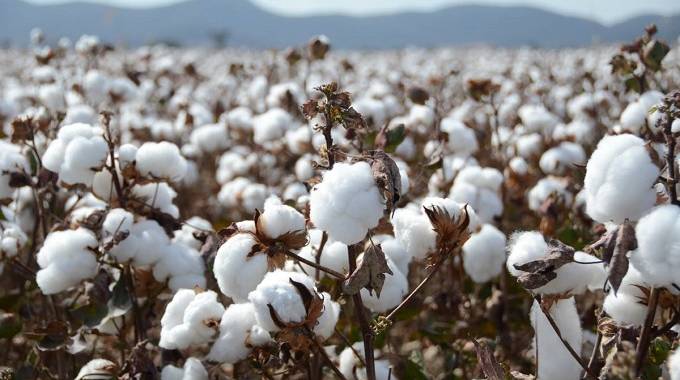
The Sunday Mail

Business Reporter
FOR the fifth year in a row, the Government will provide free inputs to cotton farmers to help keep production on an upward trend, a senior government official has said.
Known as the Presidential Free Inputs Scheme, the Government has, since 2015 been supporting farmers with free inputs, which saw cotton production rebounding.
In 2015, cotton output plummeted to about 28 000 tonnes, the lowest in nearly two decades, partly due to subdued farmer support and poor producer prices which forced many farmers to abandon cotton farming for other cash crops such as tobacco.
From being one of global cotton’s top quality producer the sector had virtually collapsed with production levels declining to less than 10 percent of normal volumes.
At some point, cotton was referred to as “white gold” in apparent reference to good profits obtained by the farmers.
Through the Government support programme, production steadily rose from 28 000 tonnes to 144 000 tonnes last year, according to figures from the Agricultural Authority of Zimbabwe.
Farmers supported by the Government—nearly 400 000—contributed about 90 percent of the output with the remainder funded by private firms.
The ginneries, which had been shut down re-opened and about 4 500 people on Cottco’s payroll.
Addressing a stakeholders meeting organised by The Cotton Company of Zimbabwe in Mushumbi Pools in the Mashonaland Central Province on Thursday, Deputy Minister for Lands, Agriculture, Water, Climate and Rural Resettlement Douglas Karoro said the Government had decided to extend the programme.
“I know you were affected by the drought last year and you did not manage to achieve good yields,” said Mr Karoro.
“I would like to tell you that this year, the government has decided to extend the programme and you will be getting free inputs.”
He, however, urged farmers to desist from the practice of side marketing. Side marketing takes place when parties to the contract violates the agreement, either when a farmer choose to sell the contracted crop to other merchants or when a company buys from farmers it has not contracted. “It is sad that some of the farmers are side marketing and we are discouraging that practice,” said Mr Karoro.
Earlier, Cottco managing director Mr Pious Manamike had told the same meeting that the company was contemplating blacklisting farmers involved in side marketing.
“We are already bringing the inputs. But after consulting the authorities, we intend to blacklist farmers who are involved in side marketing. So we urge you to deliver the crop to Cottco. As Cottco, we are not afraid of competition. We welcome investment, but that which complements us; the Government’s efforts.”
US based firm Cargill closed its local cotton business in Zimbabwe is 2014 citing operational challenges, including side marketing.
Cargill, which had more than 20 000 farmers under its contract scheme countrywide, said it had significantly suffered from low cotton output and high levels of breach of contractual obligations.
At peak, Zimbabwe produced about 351 000 tonnes of cotton in the 2011/12 season.



